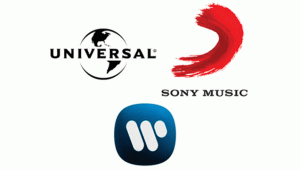Music Studies: Labels

Labels will also visit the Wisseloord Academy to talk about their work, an ideal opportunity for you as an artist to put yourself in the spotlight. But what is and does a label actually do?
Labels, also known as record companies, can be divided into two groups. The ‘3 Majors’ and the ‘independent’ labels. The majors are Sony, Universal and Warner. These three parties are the largest record companies in the world and together represent the vast majority of the market share. Independent labels are all other, smaller, labels.
A record company is always looking for new undiscovered talent with which they hope to storm the charts. They offer these talents record deals and then help them release music. They do this, for example, by financing the recording, taking care of the marketing, or managing the distribution of a song.
The advantage of signing with such a record company is that they have a network that you do not have within reach. It is a simple task for them to bring your new single to the attention of the biggest radio DJs in the country, something that an unsigned artist must arrange all by himself. In addition, recording and producing a single, EP or album is very expensive if you want to do it right. A record company can fund that for you, or in part, depending on the deal that was struck.
You will also be assigned an A&R (artist & repertoire) manager when drawing. They help you in every step of the musical developments. They give you feedback on your latest creations, ensure that you can work with the right writers and producers and see which of all the songs is the best to promote to a single.
But if you would like to sign a deal with such a record company, good music alone is not enough. The labels receive countless emails and letters every day from budding artists who are only too eager to become known.
Do not push, if you have not received a response to your submission then you are probably not (yet) interesting enough. Check with yourself, what can I improve? Provide a tight live show, many performances, and releases so that you build up a regular fan base. Acts that already have some traction among a (large) audience are more interesting for a label than throwing themselves into a completely unknown talent. So, take your time, build on your music and your act first. There’s no reason to rush.
To read more about Music Studies and how to improve the process of developing, creating and refining recorded music visit our knowledge base page about Music Studies Education.
